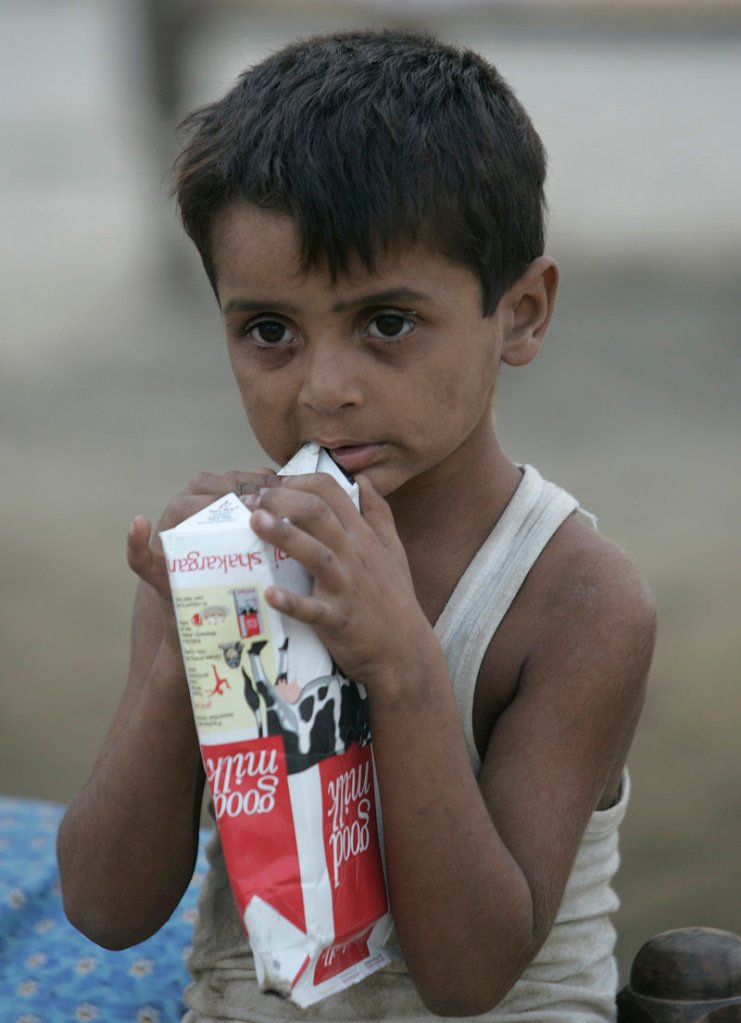WASHINGTON — The worst floods in Pakistan’s history already have swept through the nation’s most important breadbasket provinces, destroying cotton and corn crops, vegetables and orchards, and leaving many people in need of emergency food.
Now experts warn that the food crisis could expand into a long-term problem if farmers can’t get the seeds, draft animals and irrigation repairs they need for the fall planting of wheat, the nation’s most important crop.
The floods in Pakistan since July are one of the biggest disasters in recent world history. Some 17 million people have been affected, and 1,600 have been killed. Much of the nation’s farmland has been inundated, leaving crops destroyed and markets empty.
Pakistan’s government estimated that 23 percent of the current crop was destroyed.
“It’s making the food-insecure areas much more insecure,” said Sohail Jehangir Malik, who’s worked as a development expert in Pakistan and for international research and development organizations and now runs a consulting firm in Islamabad. He was visiting Washington for work with the International Food Policy Research Institute and the World Bank.
The looming wheat crisis in Pakistan comes as a drought and wildfires in Russia have cut the harvest there and have helped to drive up worldwide wheat prices.
The floods in Pakistan also have destroyed the logistics and transportation systems that make it possible to get food to markets, Malik said. In addition, much of the stored wheat saved for seed or food stocks has rotted because it couldn’t be kept dry.
Poor people have very little ability to store food in Pakistan, Malik said. “They are completely vulnerable.”
Poverty has been increasing, and the number of people who are landless or have only tiny farms has been rising. Many Pakistanis think that the previous government seriously underreported the nation’s poverty statistics, Malik said.
The important cotton and wheat areas of Punjab and Sindh provinces are prosperous agricultural areas, but they also have very high poverty rates because a small number of large landlords own the land, he said. The floods devastated both provinces.
Flooding was getting worse in southern Sindh province but the waters reportedly were receding in Punjab, the United Nations reported Friday.
Many areas are still underwater, and it’s not clear how much of the land will be ready to plant this fall, the U.N. report said. In southern Sindh, it could be six to eight weeks before the soil is fit for planting, probably past the best time for sowing.
The loss of draft animals will make it hard for farmers to get the fields ready, the United Nations added. In some places, so much silt has been deposited that it is too deep to plow and machinery will be needed. In the higher elevation areas of Khyber Pakhtunkhwa province, the top layer of fertile soil has been washed away and what remains is barren.
Malik said that some areas might have better soil after the floods, but the quality of the next wheat crop will depend on whether seeds, fertilizer and irrigation water will be available.
Much of Pakistan’s agriculture depends on irrigation, and it’s not clear how quickly the damaged canal system can be repaired. The floods damaged the irrigation systems extensively in all provinces.
The floods also destroyed corn, vegetable, fruit, sugarcane and cotton crops. Wheat, the country’s most important crop by far, isn’t sown until September or October.
If farmers are unable to plant, a massive loss of food production in 2011 and possibly long-term food shortages could result, Abdul Wajid Rana, the economic minister at the Pakistan Embassy in Washington, wrote in an Aug. 20 report.
A recent report by the nonpartisan Congressional Research Service said that environmental factors – such as water and food scarcity, natural disasters and the future effects of climate change – could weaken an already weak Pakistani government and help radical Islamist groups recruit members.
The U.S. has pledged about $200 million to Pakistan’s flood relief. Secretary of State Hillary Clinton announced the figure earlier this month and called on citizens and corporations to contribute also.
Send questions/comments to the editors.



Success. Please wait for the page to reload. If the page does not reload within 5 seconds, please refresh the page.
Enter your email and password to access comments.
Hi, to comment on stories you must . This profile is in addition to your subscription and website login.
Already have a commenting profile? .
Invalid username/password.
Please check your email to confirm and complete your registration.
Only subscribers are eligible to post comments. Please subscribe or login first for digital access. Here’s why.
Use the form below to reset your password. When you've submitted your account email, we will send an email with a reset code.